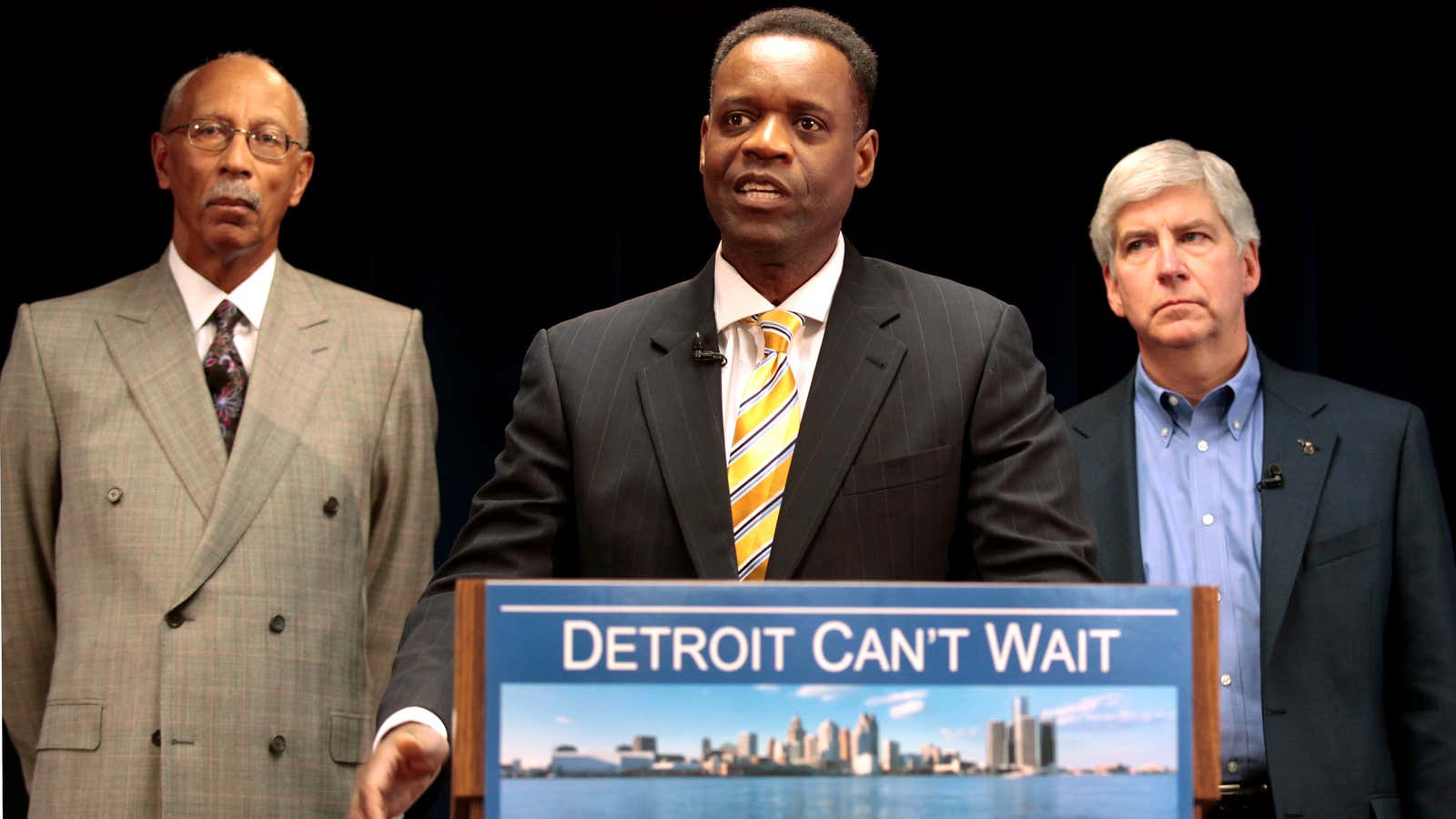The clock has been ticking since the city’s population peaked in 1950, but after decades of emigration, time finally ran out, and Detroit became the United States’ largest-ever municipal bankruptcy.
The background is fairly simple: A shrinking city—which lost more than 200,000 residents in the last decade, about 28% of its population—doesn’t have the revenue to maintain the pensions, debts, and services it promised years before, which amount to some $18.5 billion. Combine that with crime, urban blight, mismanagement, and financial chicanery, and you’ve got a problem that can’t be fixed without bankruptcy.
There are a few schools of thought around why the city’s appointed emergency manager, Kevyn Orr, filed for Chapter 9 municipal bankruptcy today. Conventional wisdom, such as it is, expected a filing in August or September.
One theory is he was just biding his time and intended to file all along. Orr’s next challenge is proving to the courts that the city is eligible for bankruptcy, which means establishing that it is insolvent (no problems there, given years of deficits) and establishing that he was negotiating with creditors in good faith. While he’ll be challenged on the latter front, it’s likely his June negotiating campaign, which kicked off with a big meeting with creditors, will meet the standard.
Another is that he was waiting for some funding. This week, Orr was close to a deal that would have allowed him to reduce payments on a poorly thought-out interest rate swap that left the city owning hundreds of millions to its bankers, and in so doing, tap into $11 million a month in casino revenue that had been set aside to pay these debts. That’s a lot of money to keep the city going, but legal disputes with the company insuring both the bonds and the swaps apparently delayed prospects for a deal. While it’s not public yet if the deal has been finalized, it was apparently a motivating factor in the timing of the filing—without the casino money, there may have been no way to keep the city running during negotiations.
A third is that he feared lawsuits from pension funds seeking to stop the bankruptcy. In Chapter 9, the city’s promise to spend billions paying for retiree health care is likely to be shifted to the federal government, and the pension funds themselves are likely to take significant cuts. Their managers have been filing lawsuits seeking to prevent the city from entering bankruptcy, but the filing stays them all.
What’s clear is this: Orr wasn’t kidding about planning hard-ball negotiations with creditors. Everything else is up in the air: The timing, which could be eight months or many years; the balance of how city workers, assets, creditors and pensions will bear the brunt of the cuts to come; and how exactly Detroit will emerge from its fiscal quagmire.
